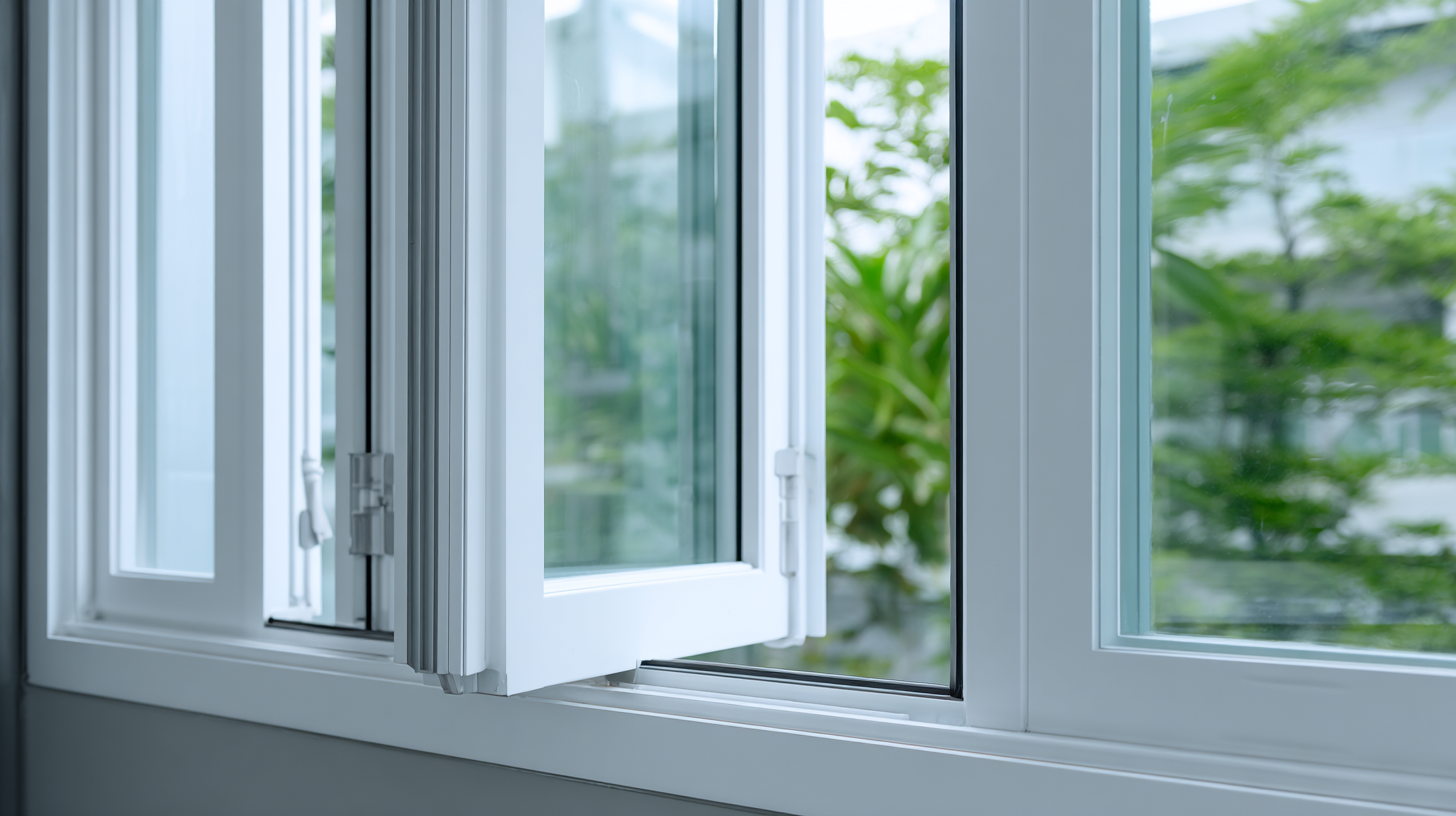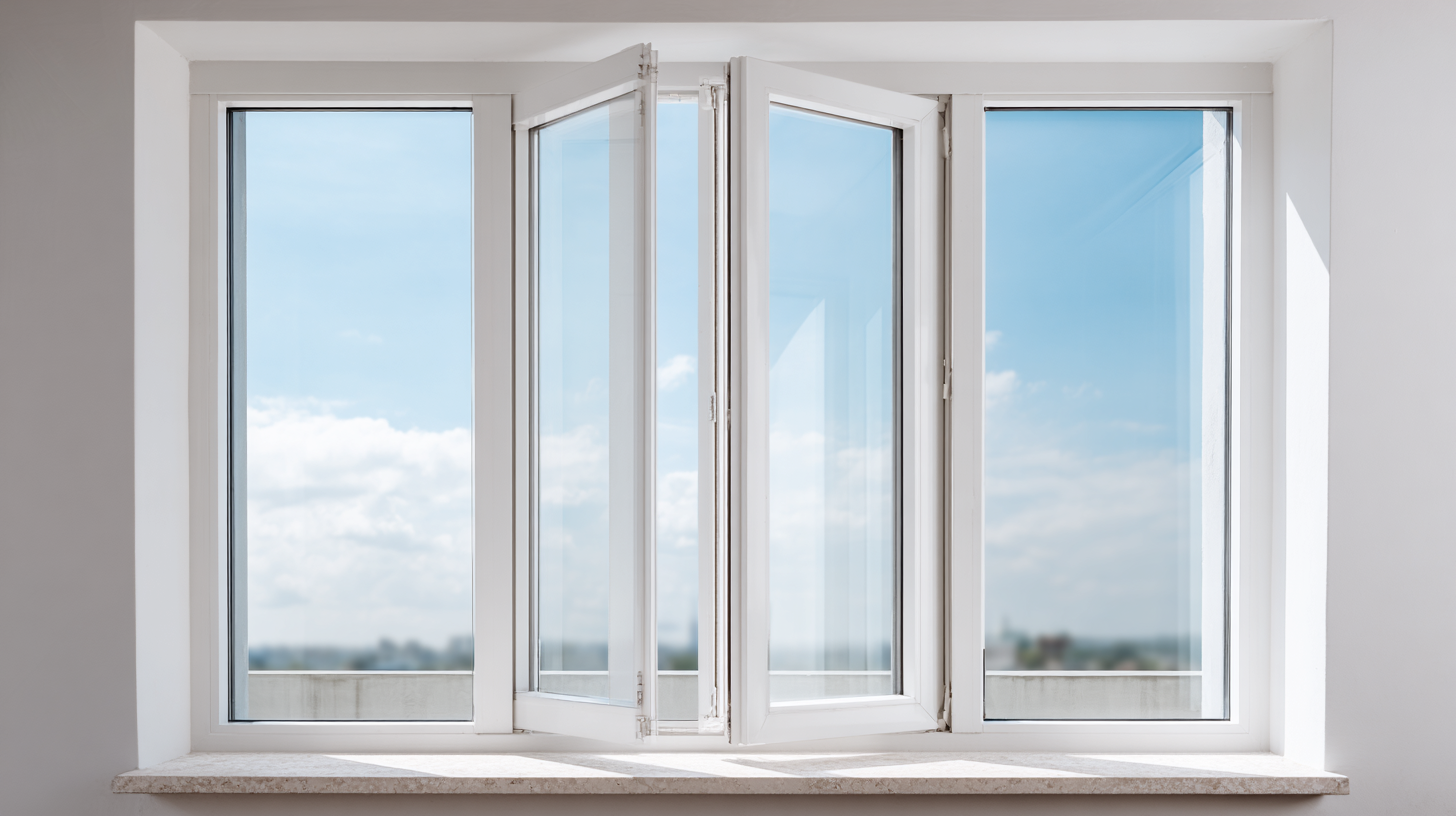In the ever-evolving landscape of home design, the demand for versatile and stylish solutions has paved the way for innovations like the Folding Window. As a leading name in the industry, LEAWOD Windows & Doors Group Co., Ltd. takes pride in being a professional R&D and manufacturing powerhouse, specializing in high-end windows and doors. With our flagship invention, the R7 seamless whole welding windows and doors, we embody the fusion of quality and functionality. However, navigating the world of import-export certifications can be a daunting task for businesses and consumers alike, especially when it comes to sourcing the best Folding Window products. This comprehensive guide aims to demystify the certification process, ensuring that you understand everything from compliance standards to international regulations, empowering you to make informed decisions for your projects and partnerships. Join us as we explore the essential aspects of import-export certifications that can elevate your experience with Folding Windows.

When importing folding window products, understanding the necessary certifications is crucial for ensuring compliance with national and international regulations. One of the key certifications to consider is the CE mark, which signifies that the product meets European safety, health, and environmental protection standards. For manufacturers seeking to enter the European market, obtaining this certification is not just beneficial but often mandatory.
Additionally, the Energy Star certification plays a vital role in promoting energy efficiency for window products. This certification assures buyers that the folding windows meet strict energy performance standards, which can be a significant selling point. Importers should also be aware of local building codes and regulations that may require additional certifications, such as those relating to insulation or wind resistance. By securing the appropriate certifications, importers can enhance product credibility and expand their market reach, ultimately ensuring customer satisfaction and regulatory compliance in their operations.
In the competitive landscape of folding window manufacturing, adhering to quality standards is paramount. Quality certifications ensure that products meet specific safety and performance criteria, which not only boosts consumer confidence but also enhances brand reputation. For manufacturers, obtaining these certifications is a commitment to excellence, demonstrating that they prioritize the durability and functionality of their products. This commitment is crucial, as folding windows must withstand varying environmental conditions while providing seamless operation.
Moreover, compliance with international quality standards opens up new markets for manufacturers. With global trade on the rise, ensuring that products meet the necessary certifications can significantly improve export opportunities. Consumers are increasingly informed and selective, favoring brands that can prove their adherence to high-quality practices. Thus, manufacturers who invest in obtaining import/export certifications not only align with regulatory requirements but also position themselves favorably among competitors in the industry, ultimately driving innovation and continuous improvement in their offerings.
When it comes to exporting folding windows, understanding the essential documentation is crucial for smooth customs navigation. The primary documents required typically include a commercial invoice, packing list, and bill of lading. The commercial invoice details the sale, providing information such as product descriptions, quantities, and prices. It serves as a key financial record and is vital for customs valuation. The packing list complements the invoice, offering specifics about the contents of each package, which helps customs officials verify that the shipments match the declared items.
In addition to these core documents, exporters should consider additional certifications depending on the destination country’s regulations. This may include Certificates of Origin, which affirm where the products were manufactured, and compliance certificates that demonstrate adherence to safety and quality standards. Understanding the intricacies of these documents not only helps in avoiding delays but also ensures that businesses comply with international trade laws. Proper documentation is the backbone of successful exporting, allowing retailers to access new markets and enhance their global presence.
When engaging in international trade, ensuring compliance with import and export certifications is crucial, especially for high-end products like those manufactured by LEAWOD Windows & Doors Group Co., Ltd. With an increasing demand for quality construction materials, LEAWOD's innovative R7 seamless whole welding windows and doors must meet various regulatory standards set by organizations such as the International Organization for Standardization (ISO) and the American Society for Testing and Materials (ASTM).
To successfully navigate international trade regulations, companies should remain informed about the specific certifications pertinent to their product categories. Data indicates that 75% of exporters face challenges with compliance, which can hinder market access and increase costs. Therefore, seeking expert guidance on certifications applicable to your products can streamline the process and ensure smoother transactions.
**Tips:**
1. Regularly consult the latest international trade regulations and certification requirements specific to your products.
2. Collaborate with experienced logistics partners to facilitate compliance verification before shipment.
3. Attend industry workshops and webinars to stay updated on best practices and changes in regulatory landscapes.

When selecting certified folding window suppliers, it's essential to prioritize manufacturers who adhere to industry standards and certifications. According to a report by MarketsandMarkets, the global window market is projected to grow at a CAGR of 4.5% from 2020 to 2025, highlighting the increasing demand for high-quality window products. This growth emphasizes the importance of choosing suppliers with proven expertise and certifications to ensure compliance with safety and energy efficiency standards.

LEAWOD Windows & Doors Group Co., Ltd. stands out as a premier choice in this market. As an R&D-focused manufacturer of high-end windows and doors, LEAWOD produces innovative solutions like the R7 seamless whole welding windows and doors. This unique offering not only enhances aesthetic appeal but also provides superior insulation and durability. When evaluating potential suppliers, look for certifications such as ISO 9001 for quality management and ENERGY STAR ratings, which can significantly impact energy consumption in residential and commercial settings. Such certifications indicate a commitment to quality and efficiency, ensuring that your investment in folding windows meets the industry's highest standards.
In today's competitive market, certifications play a vital role in ensuring that consumers feel confident in their purchases, especially when it comes to high-end products like folding windows. At LEAWOD Windows & Doors Group Co., Ltd., we understand that consumers prioritize safety and quality, making certifications an essential aspect of our product offerings. Our R7 seamless whole welding windows and doors not only embody superior craftsmanship but also come with certifications that assure buyers of their reliability and performance.
When selecting folding windows, consumers should look for certifications that guarantee energy efficiency, safety standards, and environmental compliance. These certifications often indicate rigorous testing, ensuring that the products meet or exceed industry regulations.
Tip: Always ask for certification details when purchasing windows or doors. This can help you understand the quality and safety measures in place.
Moreover, having reputable certifications can enhance consumer trust significantly. For businesses and dealers collaborating with LEAWOD, showcasing our certified products can be a powerful selling point that distinguishes them from competitors in the market.
Tip: Highlight the certifications in your marketing materials to attract more informed buyers who value quality and safety.
| Certification Name | Issuing Organization | Region of Validity | Certification Purpose | Validity Period |
|---|---|---|---|---|
| ISO 9001 | International Organization for Standardization | Global | Quality Management Systems | 3 years |
| CE Marking | European Commission | European Economic Area | Product Safety Compliance | Indefinite (until standards change) |
| FGC Certification | Global Federation of Commerce | North America | Environmental Safety | 2 years |
| AAMA Certification | American Architectural Manufacturers Association | USA | Performance Standards for Windows | 3 years |
| Energy Star | U.S. Environmental Protection Agency | North America | Energy Efficiency | Annual Review |
: The CE mark signifies that the product meets European safety, health, and environmental protection standards. It is important for manufacturers seeking to enter the European market, as obtaining this certification can be mandatory.
The Energy Star certification assures buyers that the folding windows meet strict energy performance standards, promoting energy efficiency which can be a significant selling point for importers.
Importers should be aware of local building codes and regulations that may require additional certifications related to insulation or wind resistance.
Adhering to quality standards ensures that products meet specific safety and performance criteria, boosting consumer confidence and enhancing brand reputation.
Obtaining certifications demonstrates a commitment to excellence, allowing manufacturers to provide durable and functional products while opening up new markets for export.
Consumers are increasingly informed and selective, favoring brands that can prove their adherence to high-quality practices, which can influence purchasing decisions.
Compliance with international quality standards can significantly improve export opportunities as it allows manufacturers to align with regulatory requirements and appeal to a broader market.
Securing appropriate certifications enhances product credibility, expands market reach, and ensures customer satisfaction and regulatory compliance in operations.
Consumer confidence is boosted by quality certifications, which ensures products meet safety and performance criteria, influencing customers to choose that brand over competitors.
Manufacturers who invest in obtaining import/export certifications position themselves favorably among competitors, encouraging innovation and continuous improvement in their products.











 +0086-157 7552 3339
+0086-157 7552 3339  info@leawod.com
info@leawod.com 